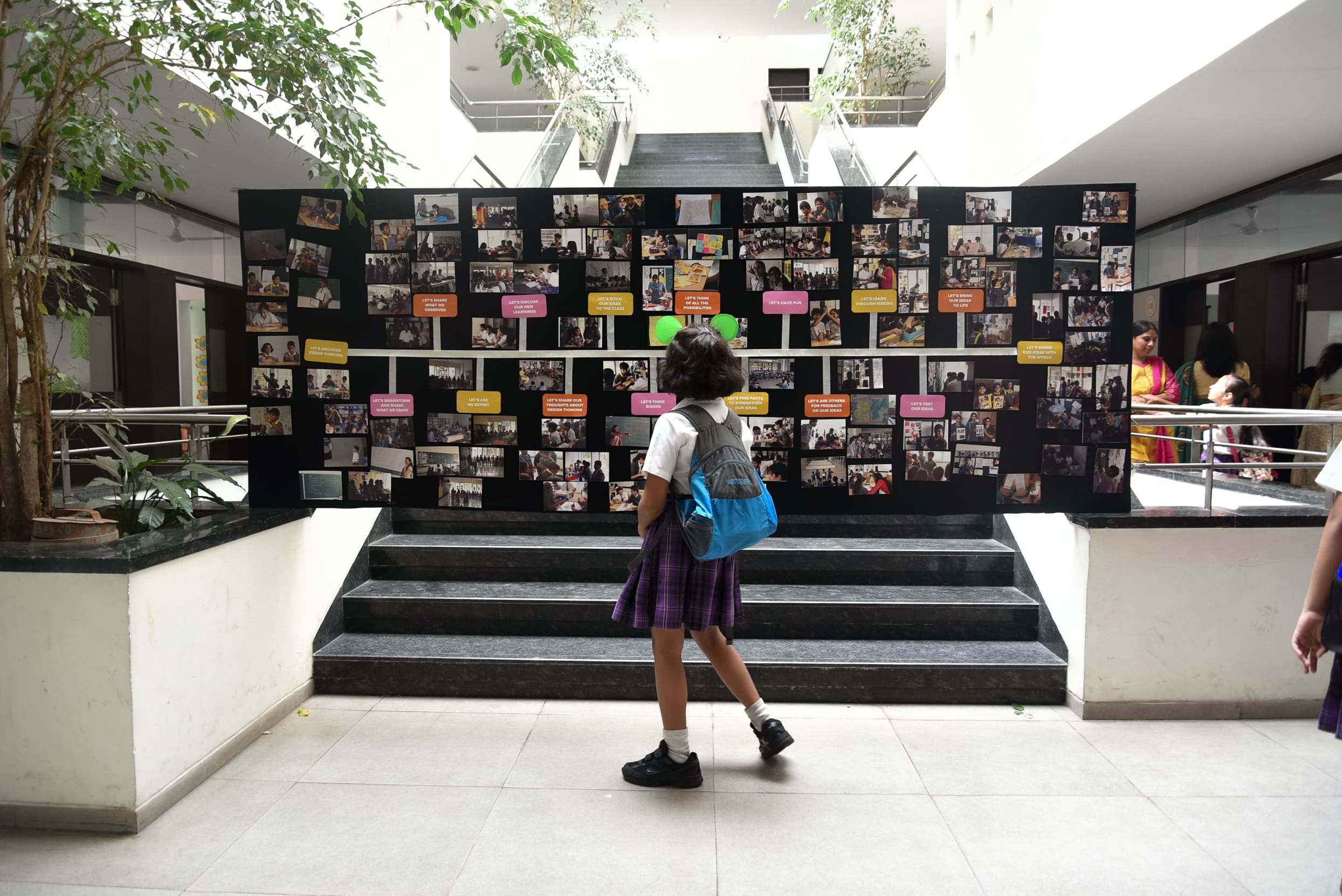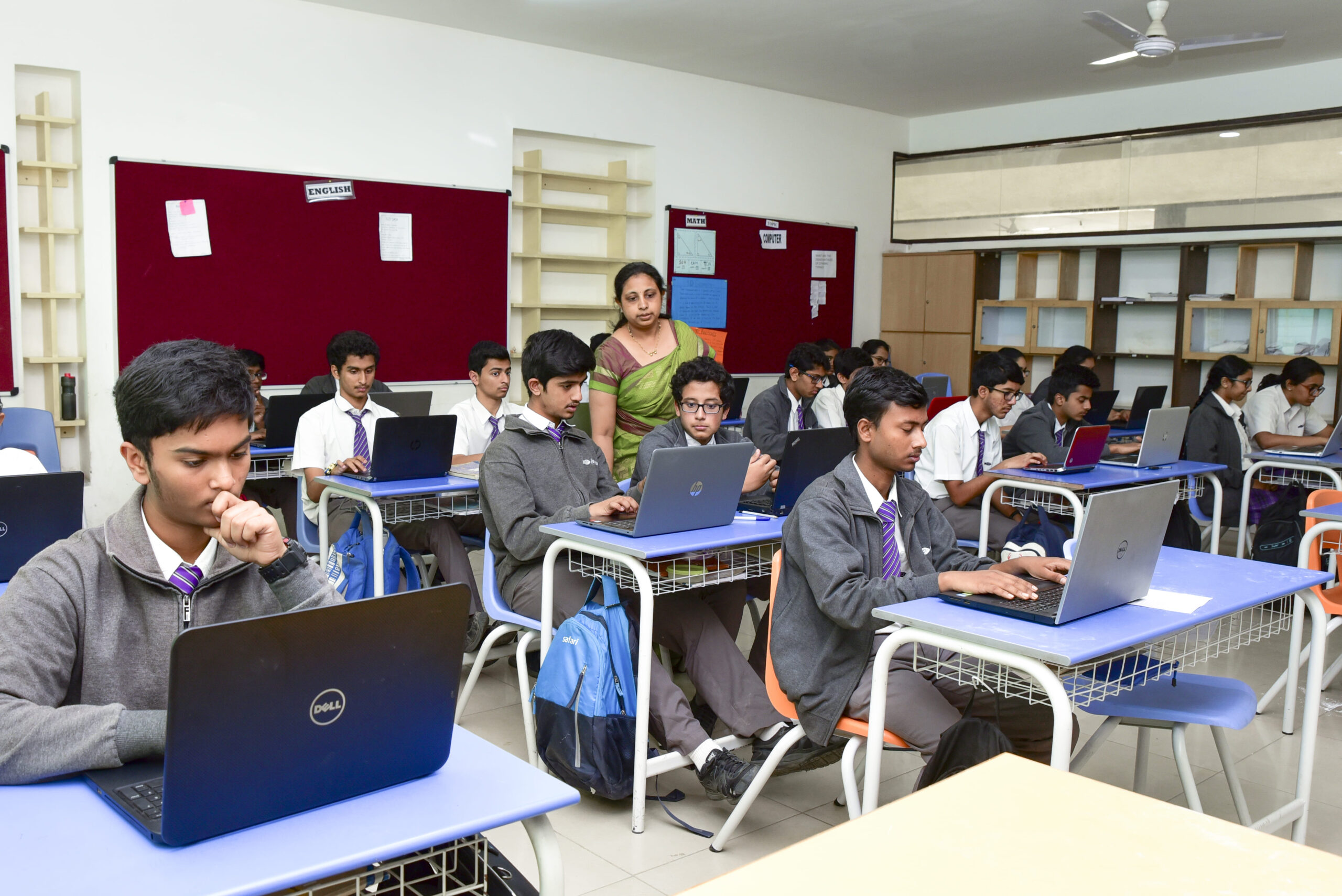EKYA/11 November 2024 Posted by : EKYA Schools
Beyond Books: Celebrating India’s Learning Revolution
"Education imparted by heart can bring revolution in the society." - Maulana Abul Kalam Azad
On this National Education Day, we take a moment to reflect on the incredible journey of India’s educational landscape—a journey that holds a legacy rich with tradition and transformation. This day serves as the perfect occasion to delve into the educational scenarios that have shaped, and continue to shape, the nation. What better day than today to celebrate and discuss the progress, challenges, and the promising future of education in India?
A Rich Legacy and Modern Evolution
India’s educational heritage is one of the richest in the world, with ancient institutions like Nalanda University setting the stage for a tradition of learning that dates back centuries. Nalanda was not just a centre of learning but a symbol of India’s commitment to education and dissemination of knowledge. Over time, this evolved into the Gurukul system, where students lived with their teachers and learned through practical engagement and oral teachings.
As we fast forward to the modern era, institutions like Ekya Schools stand as examples of how far education has come. Ekya Schools embodies the transition from conventional methods to contemporary, student-centric approaches, integrating global educational practices with local values.
Fast forward to the post-independence era, and the landscape began to change significantly. After gaining independence in 1947, India faced the challenge of building an education system that could cater to its vast and diverse population. Initially, education was not prioritised due to societal norms that favoured male education and viewed it as a privilege rather than a right. However, the winds of change began to blow with the economic liberalisation of 1991. This period marked a pivotal shift, as the government recognised the need to upgrade the educational infrastructure to harness the potential of its young population.
Post-1991 Reforms: A New Era
The liberalisation of the Indian economy in 1991 was a turning point. It brought about a renewed focus on education as a means to drive economic growth and social development. The government and private sector began investing heavily in expanding educational opportunities, both in urban and rural areas. This era saw the establishment of numerous schools, colleges, and universities, aiming to provide quality education to all segments of society.
The focus was not just on quantity but also on quality. There was a growing understanding that education needed to be comprehensive, incorporating not just academic learning but also skills development and character building. This shift was crucial in preparing students for the challenges of a rapidly changing world.
Current Educational Landscape
Today, India boasts a diverse educational landscape. 26% of the Indian population, approximately 1.39 billion people, are in the age group of 0-14 years, falling under the primary education sector. Meanwhile, 18%, or about 500 million people, are in the 15-24 age group, which encompasses secondary and higher education. This demographic dividend presents both an opportunity and a challenge for the nation, as it attempts to provide quality education to such a large segment of its population.

Technology: A Catalyst for Change
Technology has played a transformative role in education, progressively making it more accessible and engaging. According to the 2021-2022 Unified District Information System for Education (UDISE) report, 34% of schools in India now have internet access. This is a significant increase from previous years, with government schools showing a rise from 5.5% in 2017-18 to 24.2% in 2021-22. However, challenges remain, as over 50% of schools still lack functional computers. The disparity is evident across different types of schools: 35.8% of government schools, 67.5% of government-aided schools, and 71.9% of private schools have functional computers.

These statistics highlight the progress made but also underscore the need for continued investment in technology to bridge the digital divide. The integration of digital tools in education has opened up new avenues for learning, allowing students to access a wealth of information and resources at their fingertips.
The New Education Policy (NEP) 2020: A Vision for the Future
The New Education Policy (NEP) 2020 is a landmark reform that aims to overhaul the Indian education system. It introduces several transformative changes:
- The traditional 10+2 school system will be replaced by a 5+3+3+4 system, focusing more on core concepts and practical learning.
- Vocational education will be introduced from the 6th grade, equipping students with essential skills for the workforce.
- Higher education will become multidisciplinary, with all universities aiming to be multidisciplinary by 2040.
- There will be multiple exit options in undergraduate degrees, allowing students to receive a certificate after one year, a diploma after two years, and a degree after three or four years.
These reforms are designed to make education more flexible, inclusive, and aligned with the needs of the 21st century. By encouraging critical thinking, creativity, and innovation, the NEP aims to prepare students for the challenges and opportunities of a globalised world.
Looking Ahead: A Promising Future
The future of Indian education looks promising. It is estimated that by 2030, more than 20 Indian higher education universities will be among the top 200 globally. Additionally, India is expected to be among the world’s top 5 countries in Research and Development (R&D), with an annual spend of $140 billion. These projections highlight the potential for India to become a global leader in education and innovation.
In this journey towards the future, Ekya Schools continues to lead by example, adopting innovative educational practices and preparing students for tomorrow’s challenges with a focus on adaptability and leadership.
Celebrating the Journey
As we commemorate National Education Day, we not only celebrate the past and present achievements of India’s educational system but also look forward to its future. This day is the perfect opportunity to discuss and reflect on the legacy and current educational scenarios that everyone should know about. By honouring the past and embracing innovation, we prepare future generations for a world that values both knowledge and character.
What has your educational journey been like? What are your hopes for the future of education? Share your experiences as we look forward to a brighter educational future together.
